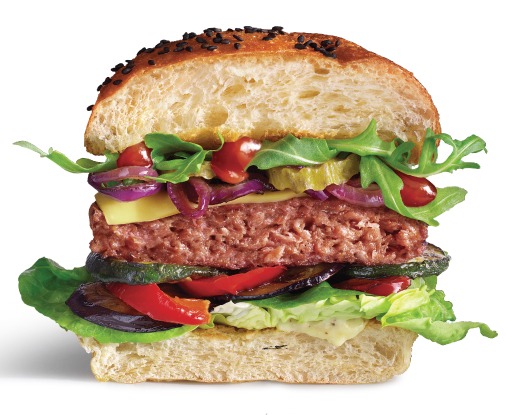Food for life: the power of plant protein
The latest evidence is in: diets high in protein, particularly plant protein, are linked to a lower risk of death from any cause. This finding comes from an analysis of more than 30 studies, which was published by The BMJ, and is encouraging news for anyone who’s been thinking about increasing their intake of plant-based proteins.
Diets high in protein, particularly protein from plants like legumes (peas, beans and lentils), whole grains and nuts, have been linked to lower risks of developing conditions like diabetes, heart disease and stroke, while regular consumption of red meat and a high intake of animal proteins have been linked to several health problems.
But data on the association between different types of proteins and mortality can be conflicting. So researchers set out to measure the relationship between intake of total, animal and plant protein and the risk of death from all causes, heart disease and cancer.

They reviewed 32 studies that reported risk estimates for all-cause, cardiovascular and cancer mortality in adults. Their results showed that a high intake of total protein was associated with a lower risk of all-cause mortality compared with low protein intake.
However, intake of plant protein was associated with an eight percent lower risk of all-cause mortality and a 12 percent lower risk of cardiovascular disease mortality. The analysis also showed that an additional three percent of energy from plant proteins a day was associated with a five percent lower risk of death from all causes.
Possible reasons for these beneficial effects of plant proteins include their association with favourable changes in blood pressure, cholesterol and blood sugar levels, which might help to lower the risk of conditions like heart disease and type 2 diabetes, say the researchers.

Making the switch
Another study by US researchers at Stanford Medicine found that swapping out red meat for plant-based meat alternatives can improve some cardiovascular risk factors.
It might seem obvious that a patty made of plants is a healthier option than a hamburger. But many of the new meat alternatives have relatively high levels of saturated fat and added sodium and are considered highly processed foods. All of these factors have been shown to contribute to cardiovascular disease risk, says Dr Christopher Gardner, who led the study.
“There’s been this sort of backlash against these new meat alternatives,” he says. “The question is, if you’re adding sodium and coconut oil, which is high in saturated fat, and using processed ingredients, is the product still actually healthy?”

To find out, Dr Gardner and his team gathered a group of people and assigned them to two different diets, each one for eight weeks. One diet called for at least two daily servings of meat – primarily red meat – and one had at least two daily servings of plant-based meat.
In particular, the researchers measured study participants’ levels of a molecule known as TMAO, which has been linked to heart disease risk. They found that TMAO levels were lower when study participants were eating plant-based meat.
But something else surprising happened when the groups switched diets. Those who transitioned from meat to plant had a decrease in TMAO levels, which was expected. Those who switched from plant to meat, however, did not see an increase in TMAO.
“It was pretty shocking,” Dr Gardner says. “We had hypothesised that it wouldn’t matter what order the diets were in.”

It turns out that there are bacterial species responsible for the initial step of creating TMAO in our gut. These species are thought to flourish in people whose diets are red-meat heavy, but perhaps not in those who avoid eating meat.
“So for the participants who had the plant-based diet first, during which they ate no meat, we basically made them vegetarians, and in so doing, may have inadvertently blunted their ability to make TMAO,” Dr Gardner explains.
Whether this type of approach could be used as a strategy for decreasing heart disease risk in the future remains to be seen.
Want to know more about plant-based meat alternatives? Check out our list of the best plant-based burgers, or try Fable Food Co’s mushroom-based alternative to slow cooked meat or v2food’s mince and burger patties.









